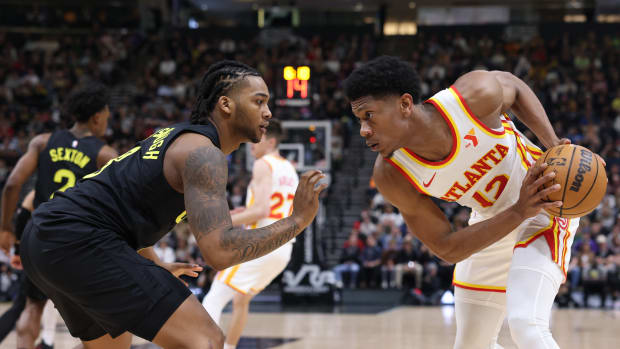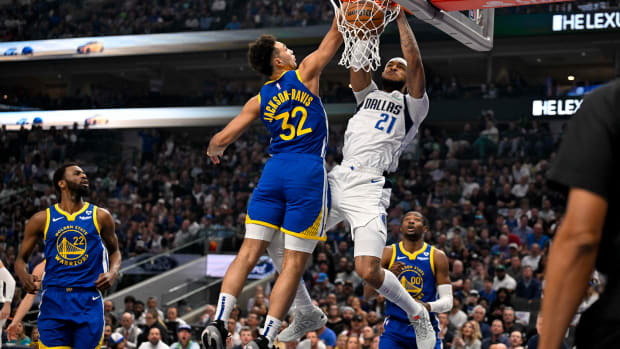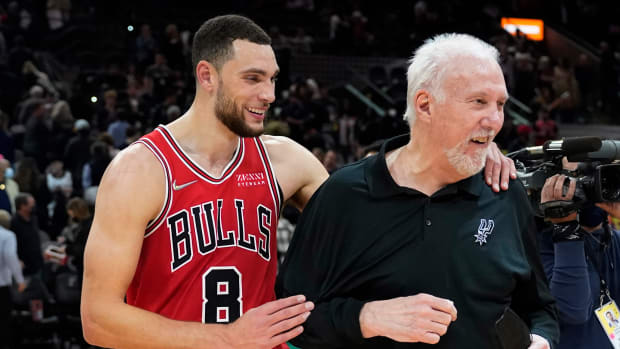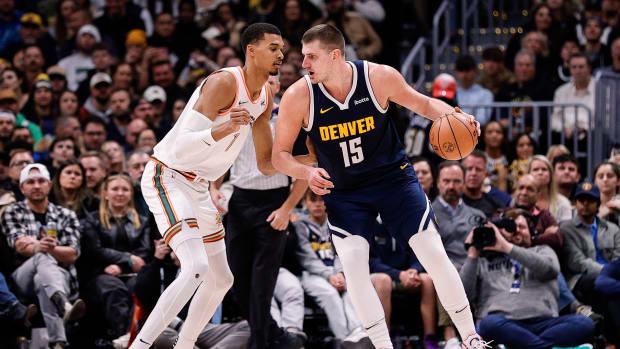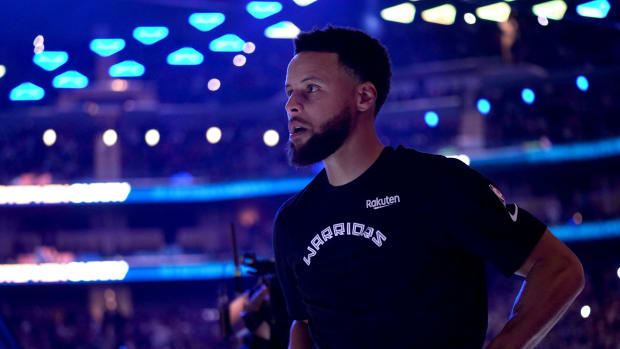
Thirty Years Later, Magic Johnson Is Still Doing Lifesaving Work
Sunday marks the 30th anniversary of Magic Johnson’s decision to retire from basketball upon learning he had been diagnosed with HIV—one of the biggest, most impactful moments for public health in generations. His diagnosis not only opened people’s eyes to the nature of the disease, but over time—with proper management and treatment—illustrated the virus didn’t have to be a death sentence. Now, three decades later, Johnson continues to use his platform to make a positive impact.
Back on Nov. 7, 1991, Johnson’s mood was understandably somber. The human immunodeficiency virus was widely thought to be one that avoided heterosexuals who weren’t using dirty needles. So how could Johnson possibly be infected? This was a man who was on the short list of the greatest basketball players of all time, with a megawatt smile. Making matters worse, he’d just married his longtime partner, Cookie, a month and a half earlier. She was also pregnant with their first child when Johnson learned of his diagnosis.
“It wasn’t how he got it that was important to me. It was ‘You’re possibly going to die.’ And that trumped everything,” Cookie Johnson said in a CBS Mornings appearance with Johnson and host Gayle King earlier this week. (The virus was never transmitted to Cookie or the baby.)
For his part, Johnson told King that having to tell his wife of the diagnosis, and of the behavior that led to it, “is still the toughest thing I’ve ever had to do in my life.” Having to retire from basketball likely ranked high on that list, as well, between the questions about his own mortality and whether it was ultimately safe for an HIV-positive player to participate in games.
During that very press conference in which he announced his diagnosis, Johnson said he would willingly become a spokesperson and poster child for the virus. “I want young people to realize that they can practice safe sex. Sometimes you’re a little naive about it, and you think that it can never happen to you,” he said. “You think it can only happen to other people. But it has happened, and I’m gonna deal with it. My life will go on.”
To wage such a public battle at what was likely the low point of his career, if not his life, was courageous for any number of reasons. Johnson didn’t have to handle things the highly public way he did. But that he chose to, and continues to do so all these years later—at a time when we now know that HIV-positive people who get the proper care can live about as long as those who aren’t—is remarkable.
“He’s helped a tremendous amount,” says Dr. Nina Harawa, a UCLA professor of medicine and epidemiology, whose research focuses on care and treatment for HIV and other sexually transmitted diseases. “There was data about the [CDC] hotlines getting far more calls for information after his disclosure. And a number of things, like testing rates [being higher]. There’s been a much more mainstream dialogue around HIV since his diagnosis. But this is still needed.”
Specifically, Harawa said, it’s been so many years since the Magic Johnson press conference that the younger generation could use its own influential moment. “I want to be careful in saying this, but there have been times where I’ve asked myself, ‘Can we have another Magic?’ And by that I mean, is there someone that the younger people can relate to, who is living with HIV, and is open about their diagnosis?” she said.
Johnson continues to advocate on behalf of public health and work with his foundation aimed, in part, at HIV and AIDS awareness, treatment and prevention. We’ve been blessed to have Magic in the public health spotlight for so long, even when it wasn’t clear how much longer we’d have him. Magic—healthy, living, and smiling just as brightly as before—is still doing the lifesaving work he’s done for three decades.
Here is a look back at Magic’s first-person account of his experience 30 years ago, along with other coverage of his initial diagnosis:
More from SI's Vault:
• Magic's Kingdom
• We Believe In Magic
• Why Magic Came Back
• Magic Johnson's Electrifying Return to the NBA































